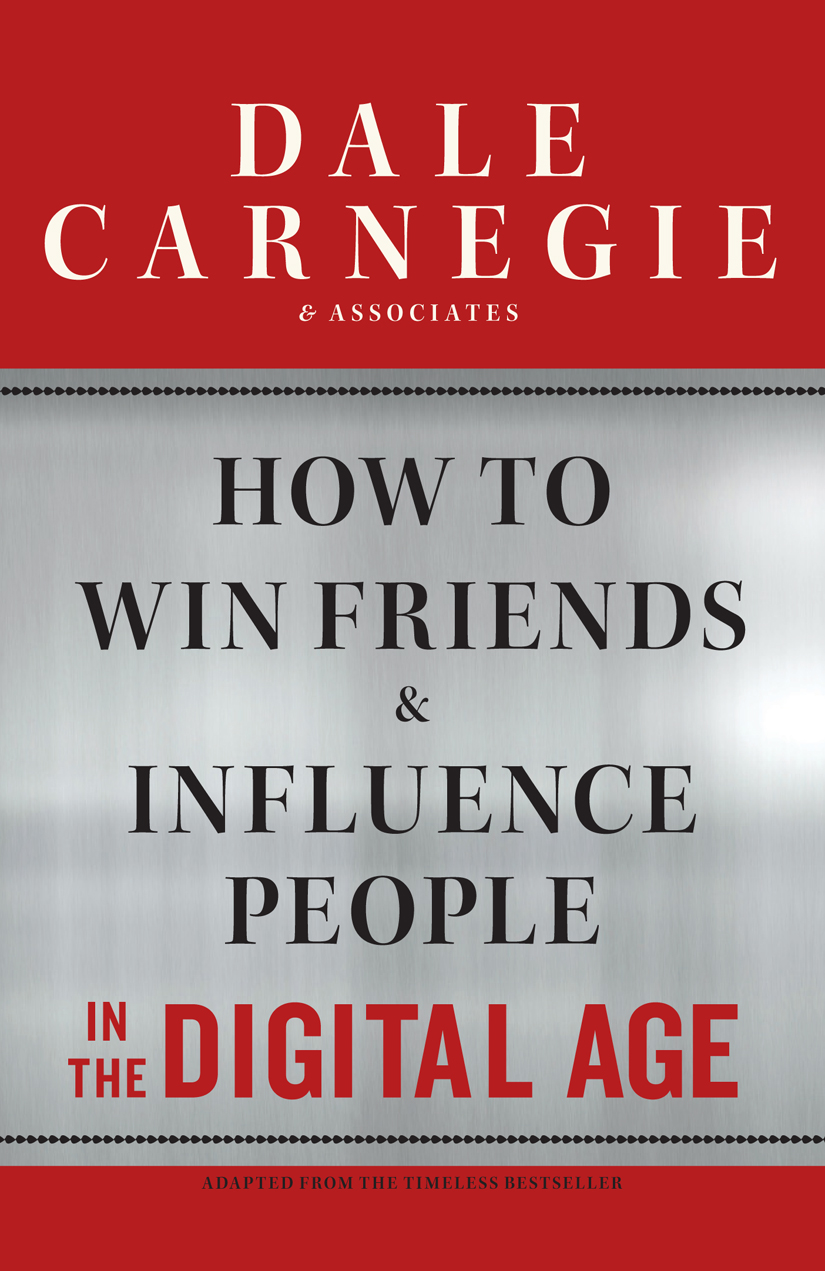In a world where digital interactions often overshadow face-to-face communication, Dale Carnegie’s classic “How to Win Friends and Influence People” remains as relevant as ever. First published in 1936, this timeless guide to human relations has sold over 30 million copies worldwide and continues to shape the way we approach personal and professional relationships.
Fundamental Techniques in Handling People
This chapter introduces three core techniques to improve how you handle people: avoid criticism, show appreciation, and arouse in the other person an eager want.
Key Concepts & Definitions
- Avoid Criticism: Criticism puts people on the defensive and makes them resentful. People are more open to change when they feel appreciated rather than attacked.
- Sincere Appreciation: People crave appreciation and recognition. Showing genuine appreciation builds strong connections.
- Arouse an Eager Want: To influence people, focus on what they want, not what you want.
Action Plans
- Avoid criticizing others.
- Practice showing genuine appreciation every day.
- Find out what the other person wants and show how they can get it.
Examples
Abraham Lincoln: Early in his career, Lincoln learned to stop criticizing and found better ways to handle conflicts.
Charles Schwab: A businessman who got the best out of employees by showing appreciation instead of scolding.
Six Ways to Make People Like You
This chapter covers six fundamental strategies to make people like you: show genuine interest, smile, remember names, listen, talk in terms of the other person’s interests, and make the other person feel important.
Key Concepts & Definitions
- Smile: A simple smile can transform interactions and make you appear approachable.
- Remembering Names: People’s names are deeply personal and important to them.
- Active Listening: Listening shows genuine interest and makes people feel valued.
- Become genuinely interested in other people: showing sincere interest in others. In today’s fast-paced world, taking the time to truly listen and engage with people can set you apart.
- Talk in terms of the other person’s interests.
- Make the other person feel important – and do it sincerely.
"A person's name is to that person the sweetest and most important sound in any language"
Action Plans
- Practice smiling more often.
- Make an effort to remember and use people’s names in conversation.
- Focus on listening actively without interrupting.
Examples
- Theodore Roosevelt: He made people feel important by remembering details about their lives.
- Edward Bok: Gained success through friendliness and remembering people’s names.
How to Win People to Your Way of Thinking
In this chapter, Carnegie explains how to influence others by avoiding arguments, respecting their opinions, admitting when you’re wrong, and seeing things from their point of view.
Key Concepts & Definitions
- Avoid Arguments: No one wins in an argument. It’s better to avoid confrontations.
- Admit Mistakes: People respect honesty. Admit when you’re wrong to defuse tension.
- Empathy: Understand the other person’s perspective to make meaningful connections
- Never say, “You’re wrong.”: Show respect for the other person’s opinions.
- Begin in a friendly way.
- Get the other person saying “yes, yes” immediately.
- Let the other person do a great deal of the talking.
- Let the other person feel that the idea is his or hers.
- Be sympathetic to the other person’s ideas and desires.
- Appeal to the nobler motives.
- Dramatize your ideas.
- Throw down a challenge.
Action Plans
- Avoid getting into arguments; seek common ground instead.
- When wrong, admit it quickly and emphatically.
- Practice putting yourself in the other person’s shoes during discussions.
Examples
- Benjamin Franklin: Learned to avoid arguments by focusing on empathy and humility.
- Henry Ford: A business magnate who understood the value of seeing things from others’ perspectives.
Be a Leader: How to Change People Without Giving Offense or Arousing Resentment
This chapter highlights leadership techniques that encourage others to improve without causing resentment, including praising others, giving indirect criticism, and making people feel the improvement was their idea.
Key Concepts & Definitions
- Praise Before Criticism: People are more receptive to feedback when they first receive praise.
- Indirect Criticism: Instead of pointing out someone’s mistakes directly, suggest an alternative solution.
- Make Improvement Seem Like Their Idea: Allow others to take ownership of their improvement.
Action Plans
- Practice giving sincere praise before offering any criticism.
- Use indirect suggestions to guide people toward improvement.
- Encourage people to take ownership of their own development.
Examples
- Andrew Carnegie: Applied these principles in business to encourage employees to improve without feeling attacked.
- Franklin D. Roosevelt: Used praise and empathy to lead effectively during his presidency.
Practical Application
To apply Carnegie’s principles in today’s world:
- Practice active listening in video calls and face-to-face conversations.
- Avoid public criticism online; instead, offer constructive feedback privately.
- Show appreciation through thoughtful comments and messages on social media.
- Use people’s names in email greetings and social media interactions.
- Share others’ achievements on professional networks like LinkedIn.
Critical Reflection
While Carnegie’s advice remains largely applicable, it’s important to adapt these principles to modern contexts. For instance, the idea of “winning friends” might be better framed as building authentic connections in today’s more nuanced understanding of relationships.
Moreover, in a world where online interactions can sometimes feel superficial, the challenge lies in applying Carnegie’s principles genuinely and meaningfully across digital platforms.
Conclusion
“How to Win Friends and Influence People” offers timeless insights into human behavior and relationships. By applying Carnegie’s principles with authenticity and adapting them to our digital landscape, we can enhance our personal and professional interactions, leading to more fulfilling relationships and greater success.
Ready to put these principles into action and transform your learning into concrete results? Join the actionabooks.com waiting list to discover how you can turn insights like these into real-world success.



Leave a Reply